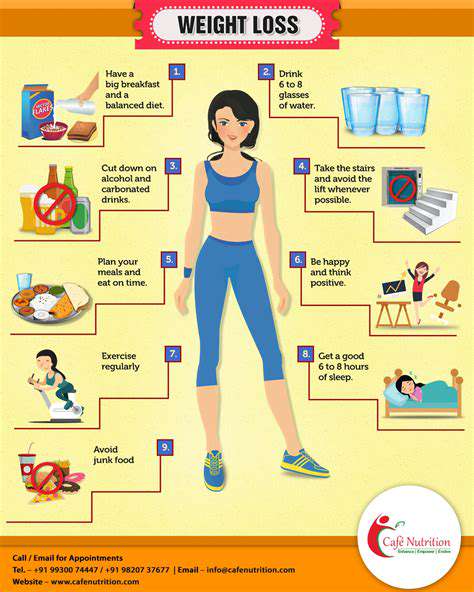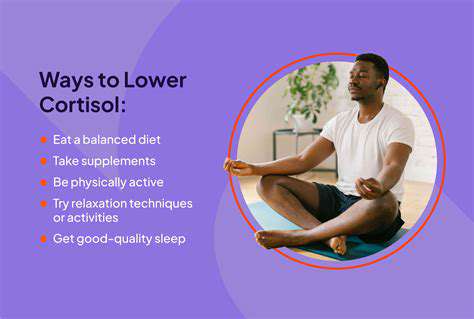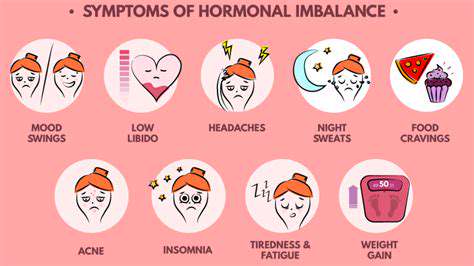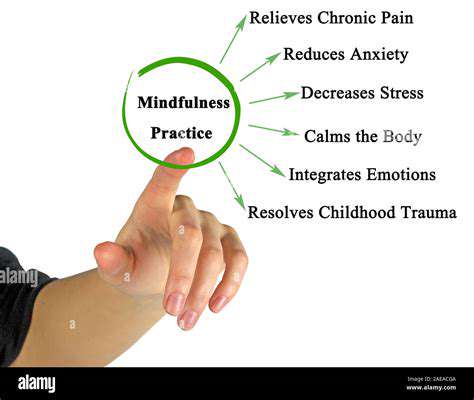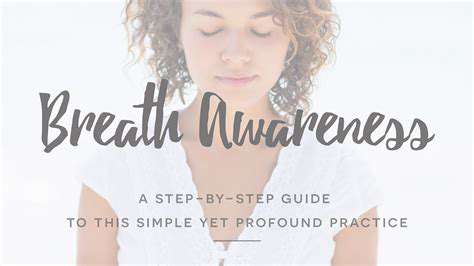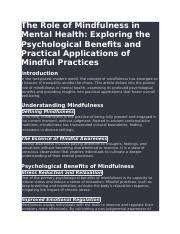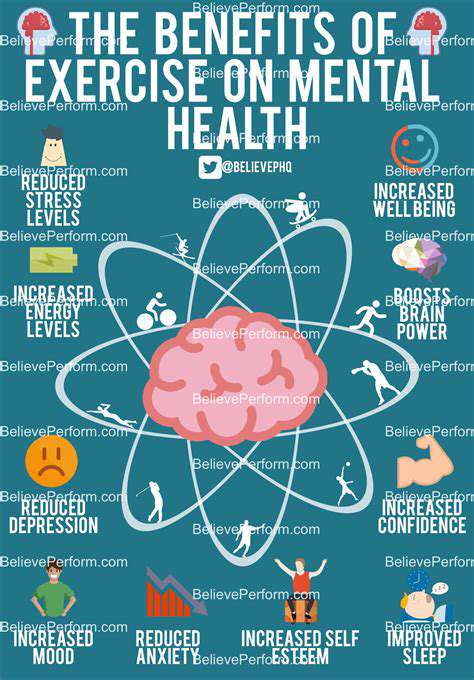Effective Strategies for Stress Management in Daily Life
Identifying Stressors: The First Step
Understanding Common Stressors
Identifying common stressors in daily life is essential for effective stress management. These stressors can vary from personal relationships and work-related issues to financial pressures and health concerns. By recognizing these factors, individuals can proactively address them before they escalate into overwhelming stress.
Some typical stressors include deadlines at work, family responsibilities, and major life changes, such as moving or starting a new job. Each person's triggers may differ, and it’s important to take the time to reflect on one's unique circumstances to better understand what causes stress. This awareness is crucial for developing targeted coping strategies.
In addition, stressors can be both external, such as environmental factors and social interactions, and internal, such as negative thoughts and self-doubt. Acknowledging the dual nature of stressors can empower individuals to take ownership of their responses to stress and seek appropriate solutions.
Keeping a Stress Journal
One effective method for identifying stressors is to maintain a stress journal. This tool involves documenting moments of stress, including the triggers, your feelings, and how you responded to the situation. Over time, patterns often emerge, helping individuals pinpoint specific stressors more clearly.
In the journal, it's beneficial to note the time of day, circumstances surrounding the stressful moments, and any physical symptoms experienced. Reviewing these entries can provide insights into peak stress times and the triggers that consistently arise. This awareness can lead to more effective planning and coping mechanisms.
Moreover, a stress journal also serves as a reflection tool, offering an opportunity to celebrate small victories when individuals successfully cope with stressors. This practice not only encourages mindfulness but also motivates continued growth in stress management strategies.
Practicing Mindfulness and Meditation

Understanding Mindfulness
Mindfulness is the practice of being present in the moment, aware of your thoughts and feelings without judgment. This awareness can significantly reduce stress and enhance overall well-being. By focusing on the here and now, individuals can break the cycle of negative thinking that often exacerbates stress.
There are various techniques to cultivate mindfulness, including mindful breathing, body scans, and mindful walking. Regular practice can lead to a deeper sense of clarity and peace in daily life.
Incorporating Meditation into Daily Routines
Meditation is a powerful tool for stress relief, allowing the mind to calm and refocus. Taking just a few minutes each day to meditate can help you develop greater emotional resilience against stress. Establishing a consistent meditation practice can yield long-term benefits for mental health.
Simple techniques such as guided meditation or using meditation apps can make it easier for beginners to start. This way, you can slowly build up your practice and discover which techniques resonate best with you.
Benefits of Mindfulness and Meditation
The benefits of mindfulness and meditation extend far beyond stress management; they can improve concentration, enhance emotional regulation, and boost overall happiness. Regular engagement in these practices can lead to more meaningful interactions with others and greater self-awareness.
By prioritizing mindfulness and meditation, individuals can create a healthier, more balanced life. These practices empower individuals to respond to life's challenges with greater clarity and composure.
Physical Activity: A Natural Stress Reliever
Understanding the Connection Between Exercise and Stress
Physical activity is not just beneficial for physical health; it plays a crucial role in managing stress levels. When you engage in exercise, the body releases endorphins, which are often referred to as "feel-good" hormones. These natural chemicals help to elevate mood and promote an overall sense of well-being.
Moreover, regular physical activity can act as a distraction from daily stressors. Whether it's a brief walk, a workout session, or a sport, focusing on the activity can give your mind a break from worrying thoughts and overwhelming tasks.
The adrenaline and physical exertion involved in exercise have the potential to improve one's resilience to stress. By consistently challenging the body, individuals often find they are better equipped to handle life's pressures.
It’s important to note that the type of exercise doesn’t necessarily need to be strenuous. Activities such as yoga and tai chi can also effectively reduce stress by fostering relaxation and mindfulness.
Incorporating regular physical activity into your routine can lead to better sleep patterns as well—another key factor in managing stress. Better rest allows for better stress resilience throughout the day.
Creating a Sustainable Exercise Routine
To reap the benefits of physical activity for stress management, establishing a consistent exercise routine is vital. Begin by assessing your current activity levels and determining what types of exercises you enjoy, whether it’s walking, cycling, swimming, or dancing.
Setting realistic goals is essential for sustainability. Start with manageable targets, such as exercising three times a week for 30 minutes, and gradually increase frequency or duration as it becomes easier.
Finding a workout buddy can also enhance motivation and accountability. Exercising with a friend not only makes the activity more enjoyable but also provides mutual support in maintaining your routine.
Consider scheduling your workouts just like any other appointment. Allocating specific time slots in your calendar can help you prioritize physical activity and reduce the likelihood of skipping sessions due to a busy schedule.
Lastly, be flexible and adaptable. Life can be unpredictable, so don’t be discouraged if you miss a workout. Instead, find alternative times or activities to ensure physical activity remains a part of your stress management strategy.
Mindfulness and Mental Benefits of Exercise
Exercise serves as an excellent platform for mindfulness, which can have profound effects on stress reduction. When engaged in physical activity, you can focus on your body’s movements, your breath, and the environment around you, fostering a state of presence that encourages relaxation.
Incorporating mindfulness into your workouts, such as through meditation or breathing exercises during yoga, can further enhance its stress-relieving effects. This practice allows you to cultivate greater self-awareness and response to stress.
Additionally, the sense of achievement that comes from completing a workout can significantly boost self-esteem. This improvement in self-image further empowers individuals to tackle daily challenges with greater confidence.
Exercise also promotes social connections, as many physical activities can be done in groups or classes. Building relationships through shared interests can alleviate feelings of isolation and contribute to an enhanced support network during stressful times.
Finally, as with physical health, a consistent exercise routine can lead to better emotional health, creating a positive feedback loop where reduced stress promotes a greater desire to stay active.
Overcoming Barriers to Regular Exercise
Despite the recognized benefits of exercise for stress management, many face barriers that prevent them from maintaining a regular routine. Common obstacles include lack of time, motivation, or access to facilities.
To combat time constraints, consider integrating short bursts of physical activity into your daily life. For example, opt for stairs instead of elevators, or take brief stretches during work breaks. Every bit of movement counts towards your overall activity levels.
Finding motivation can be a personal journey. Setting small, achievable milestones can provide regular boosts of encouragement as you meet them. Rewarding yourself after reaching goals can also maintain your enthusiasm.
In cases where access to gyms or classes is a barrier, explore free resources. Online workout classes, local parks for running or walking, and bodyweight exercises at home can all be effective alternatives.
Lastly, remember that consistency is more important than perfection. Allowing yourself grace on days when motivation is low can keep you engaged in the long run, ultimately contributing to a healthier response to stress.
Establishing Healthy Boundaries
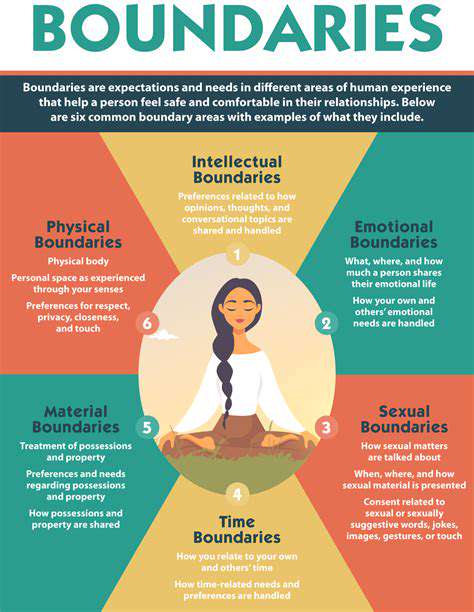
Understanding Personal Limits
Recognizing your personal limits is the first step in establishing healthy boundaries. When you are aware of what you can handle, you can communicate these limits effectively to others.
This awareness can prevent overcommitment and the overwhelm that often accompanies it. By saying no when necessary, you create space for activities and relationships that truly benefit you.
Communicating Assertively
Assertive communication is crucial for maintaining healthy boundaries. It's important to express your needs and feelings clearly and respectfully, ensuring that your voice is heard.
When you communicate assertively, you foster mutual respect and understanding in your relationships. This practice reduces the likelihood of resentment building up over time, leading to healthier interactions overall.
Prioritizing Self-Care
Self-care is essential in stress management and should never be overlooked. By taking time for yourself, you replenish your energy and improve your overall well-being.
Creating a self-care routine helps you to set boundaries that protect your time and energy from external demands. Regularly engaging in activities you enjoy can significantly lower your stress levels.
Setting Realistic Expectations
Setting realistic expectations for yourself and others can help in avoiding unnecessary stress. By striving for achievable goals, you create a sense of accomplishment without overwhelming pressure.
This practice encourages a balanced life where achievements are celebrated, rather than setting oneself up for failure. Adjusting your expectations can foster a healthier mindset, making challenges more manageable.
Utilizing Time Management Techniques
Effective time management can greatly reduce stress levels in daily life. By organizing your tasks and prioritizing them, you gain control over your schedule and responsibilities.
Using tools like to-do lists or planning apps can help you visualize your workload. This clarity allows you to allocate time for breaks and leisure activities, making your routine more enjoyable.
Building a Support System
The Importance of Connections
Having a solid support system is crucial for effective stress management. Connecting with friends, family, and colleagues can provide much-needed emotional support during challenging times. These connections can help alleviate feelings of isolation and offer different perspectives on stressors.
Supportive relationships can also encourage healthier coping strategies. When surrounded by positive influences, individuals are more likely to adopt constructive behaviors, such as engaging in physical activity or seeking professional help when needed.
Building a network of trustworthy individuals allows for open communication, enabling you to share your thoughts and feelings freely. This exchange can significantly reduce stress levels and foster a sense of belonging and security.
Strategies for Developing Your Support System
To enhance your support network, consider participating in community groups or organizations that align with your interests. Activities such as volunteering, joining clubs, or attending workshops can help you meet new people and foster meaningful relationships.
Reaching out to colleagues or classmates can also strengthen your support system. Collaborative projects or study groups can cultivate a sense of camaraderie, making it easier to discuss stressors and seek advice from peers who understand your situation.
Lastly, don't hesitate to seek professional support if needed. Therapists and counselors can offer guidance, coping techniques, and a safe space to express your feelings. This professional layer can complement your personal connections and provide a comprehensive support system for managing stress effectively.
Maintaining a Healthy Lifestyle
Prioritizing Nutrition
Nutrition plays a critical role in managing stress levels. A balanced diet that includes plenty of fruits, vegetables, whole grains, and lean proteins can enhance your mood and energy levels. Foods rich in omega-3 fatty acids, such as salmon and walnuts, are particularly effective in reducing anxiety.
It's also essential to limit the intake of processed foods, sugar, and caffeine, which can lead to energy crashes and increased irritability. Instead, focus on incorporating whole and unprocessed foods that nourish the body and mind.
Staying hydrated is another crucial aspect of maintaining nutritional balance. Dehydration can lead to fatigue and heightened stress responses, so aim to drink plenty of water throughout the day.
Planning meals ahead of time can help avoid unhealthy snacking and ensure you have access to nutritious options even on busy days. Consider meal prepping or keeping healthy snacks on hand to make better choices easier.
Lastly, paying attention to portion sizes is vital. Overeating can lead to discomfort and increased stress levels. Practice mindful eating by savoring each bite and listening to your body's hunger cues.
Incorporating Exercise
Exercise is one of the most effective ways to reduce stress and improve overall well-being. Physical activity releases endorphins, which are natural mood lifters and can help alleviate feelings of anxiety and depression.
Finding an exercise routine that you enjoy is crucial for maintaining consistency. Whether it’s dancing, swimming, yoga, or brisk walking, doing something you love makes it easier to stay active and reap the benefits.
Even short bouts of physical activity can be beneficial. Aim for at least 30 minutes of moderate exercise most days of the week, and remember that activities like gardening, cleaning, or playing with children also count towards your daily exercise goals.
Setting realistic fitness goals can help maintain motivation and provide a sense of accomplishment. Tracking your progress and celebrating small achievements can further encourage you to stick with your exercise routine.
Incorporating movement into your daily routine is essential as well. Take the stairs instead of the elevator, walk or bike to work, or take regular breaks to stretch during long periods of sitting. These little changes can contribute significantly to your physical and mental health.
Practicing Mindfulness and Relaxation Techniques
Mindfulness and relaxation techniques can be powerful tools in managing stress. Mindfulness involves staying present in the moment and can help reduce anxiety about the future or regret about the past.
Practicing meditation for even a few minutes each day can enhance your ability to focus, lessen stress, and promote emotional health. Apps and online resources can provide guided meditation sessions for beginners.
Deep breathing exercises are another effective stress management technique. Taking slow, deep breaths can help calm the nervous system and reduce anxious feelings. Aim for a few minutes of deep breathing whenever you notice stress creeping in.
Additionally, yoga combines physical movement with mindfulness and can significantly lower stress levels. Participating in yoga classes or following online tutorials at home can improve flexibility and promote relaxation.
Finally, establishing a regular relaxation routine can help create a sense of stability in daily life. This could include activities like reading, taking a warm bath, or spending time in nature. Dedicate time for yourself to unwind and recharge regularly.
Finding Hobbies and Activities You Enjoy
Exploring New Interests
Finding new hobbies can be an enriching experience that allows individuals to discover skills and passions they never knew they had. This exploration can lead to greater joy and satisfaction in daily life. Trying out different activities, whether they're artistic, physical, or intellectual, opens up opportunities for personal growth.
Many people find that engaging in new interests can provide a welcomed distraction from everyday stressors. Activities such as pottery, painting, or acting can ignite creativity and offer an avenue for self-expression. Stepping out of one's comfort zone often leads to surprising and fulfilling experiences.
Additionally, exploring interests often leads to meeting new people who share similar passions. This can create new social circles that foster support, encouragement, and friendship, which are essential for emotional wellbeing.
Moreover, the satisfaction derived from mastering a new skill can significantly boost self-esteem. Achieving small goals within a hobby can translate to a greater sense of accomplishment that positively impacts other areas of life.
Finally, the process of exploration itself can be meditative. Choosing to immerse oneself in activities fosters a state of mindfulness that is beneficial for managing stress effectively.
Participating in Physical Activities
Physical activity is widely recognized for its numerous benefits, including its role in managing stress. Exercise releases endorphins, which are natural mood lifters that can alleviate feelings of anxiety and depression. Incorporating regular physical activity into a weekly routine can create a buffer against life's stressors.
Different forms of exercise appeal to different individuals; finding the right fit is crucial. Some may thrive in high-energy environments like dance classes or sports, while others may prefer calming activities such as yoga or tai chi. Regardless of the type, the key is consistency and enjoyment.
Group activities, such as joining a local sports team or fitness class, can also enhance social connections and accountability. Having a supportive community can encourage individuals to stick with their fitness goals, creating a sense of belonging.
Even short bursts of physical activity throughout the day can be beneficial. Simple changes, like taking the stairs instead of the elevator, going for a brisk walk during lunch breaks, or practicing stretching exercises at home, can make a significant difference in overall wellbeing.
Ultimately, engaging in regular physical activity not only contributes to physical health but also promotes mental clarity. This holistic improvement can be a powerful tool for stress management.
Integrating Mindfulness Practices
Mindfulness practices, including meditation, deep breathing exercises, and mindful eating, are effective tools for managing stress. These practices encourage individuals to focus on the present moment, reducing anxiety about the past or future. Helping clear the mind leads to a calmer and more centered state.
Starting with just a few minutes of mindfulness meditation each day can lead to profound changes in how one handles stress. For beginners, guided meditations can provide structure and ease into the practice, making it less daunting.
Deep breathing exercises can be particularly useful during stressful situations. Techniques such as diaphragmatic breathing promote relaxation and can be practiced anytime, anywhere, providing immediate relief when stress peaks.
Emphasizing mindfulness in daily activities, like eating, helps cultivate appreciation for the present moment. Taking time to savor each bite can enhance the experience and reduce mindless eating often associated with stress.
Incorporating mindfulness into daily routines leads to a greater sense of control and a better ability to face challenges. Over time, these practices can become automatic responses to stressors, fostering a resilient mindset.
Building Healthy Relationships
Healthy relationships are fundamental for emotional support and stress management. Surrounding oneself with positive and encouraging individuals creates a supportive environment that can help alleviate stress. Engaging in meaningful conversations and sharing experiences fosters connection and understanding.
Effective communication is key in relationships. Being open about feelings, especially when stressed, allows others to provide the necessary support. Establishing trust and honesty can lead to deeper, more fulfilling connections.
Setting boundaries is an essential aspect of maintaining healthy relationships. It's crucial to recognize personal needs and limitations, communicating them to others to avoid burnout and resentment.
Participating in social activities, such as group outings or shared hobbies, strengthens bonds with friends and loved ones. Shared experiences create lasting memories and reinforce a sense of belonging.
Ultimately, investing time and effort in building and maintaining healthy relationships is a powerful strategy for reducing stress. The support system created through these connections is invaluable for navigating life's challenges.
Establishing a Balanced Routine
A balanced routine is vital in managing stress effectively. Establishing a daily schedule that prioritizes work, leisure, and self-care creates a sense of order in life. It can help mitigate feelings of overwhelm by ensuring that all aspects of life are given appropriate time and attention.
Including time for relaxation and downtime in a routine is just as important as productivity. Engaging in activities that provide joy, such as reading, hobbies, or spending time with loved ones, rejuvenates the mind and body.
Additionally, maintaining a healthy sleep schedule is critical for stress management. Sleep deprivation can heighten stress levels, impair decision-making, and affect mood. Creating a nighttime routine that promotes relaxation can lead to improved sleep quality.
Incorporating regular breaks throughout the day can also enhance productivity and reduce stress. Short breaks during work allow the mind to recharge, leading to increased focus and efficiency.
Finally, reflecting on and adjusting routines as necessary is crucial. Evaluating what works best and making changes promotes a flexible approach to life, making it easier to adapt to new challenges without becoming overwhelmed.


